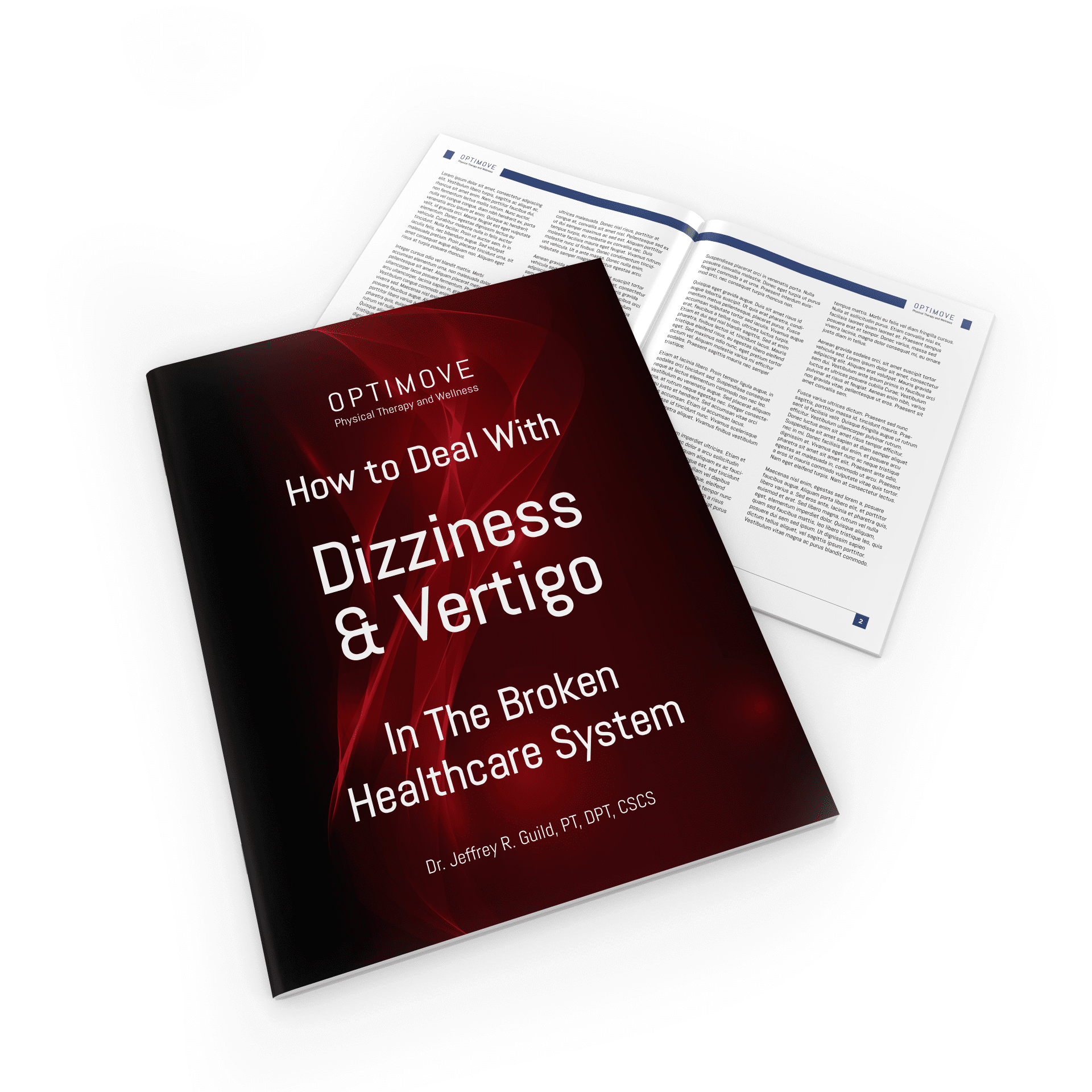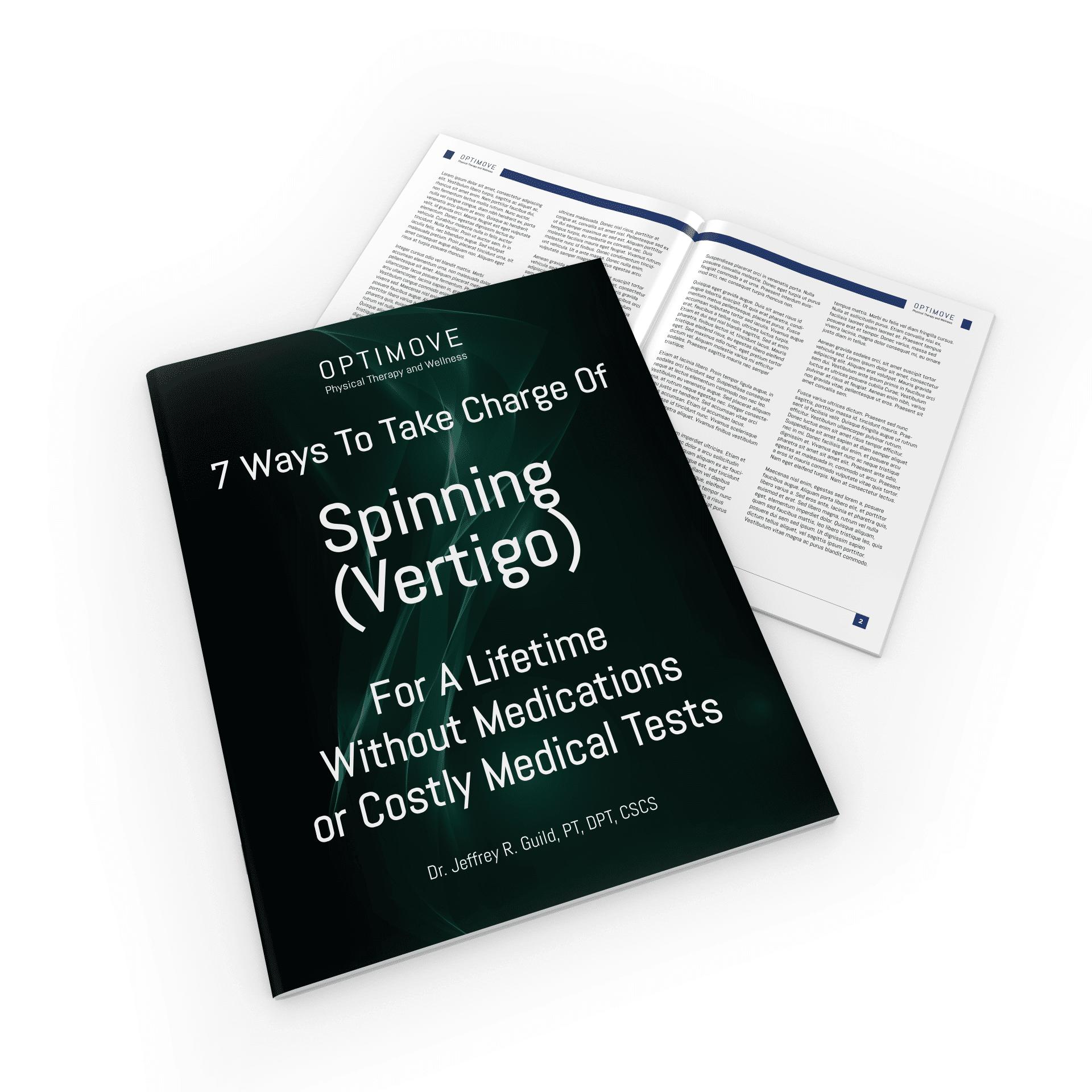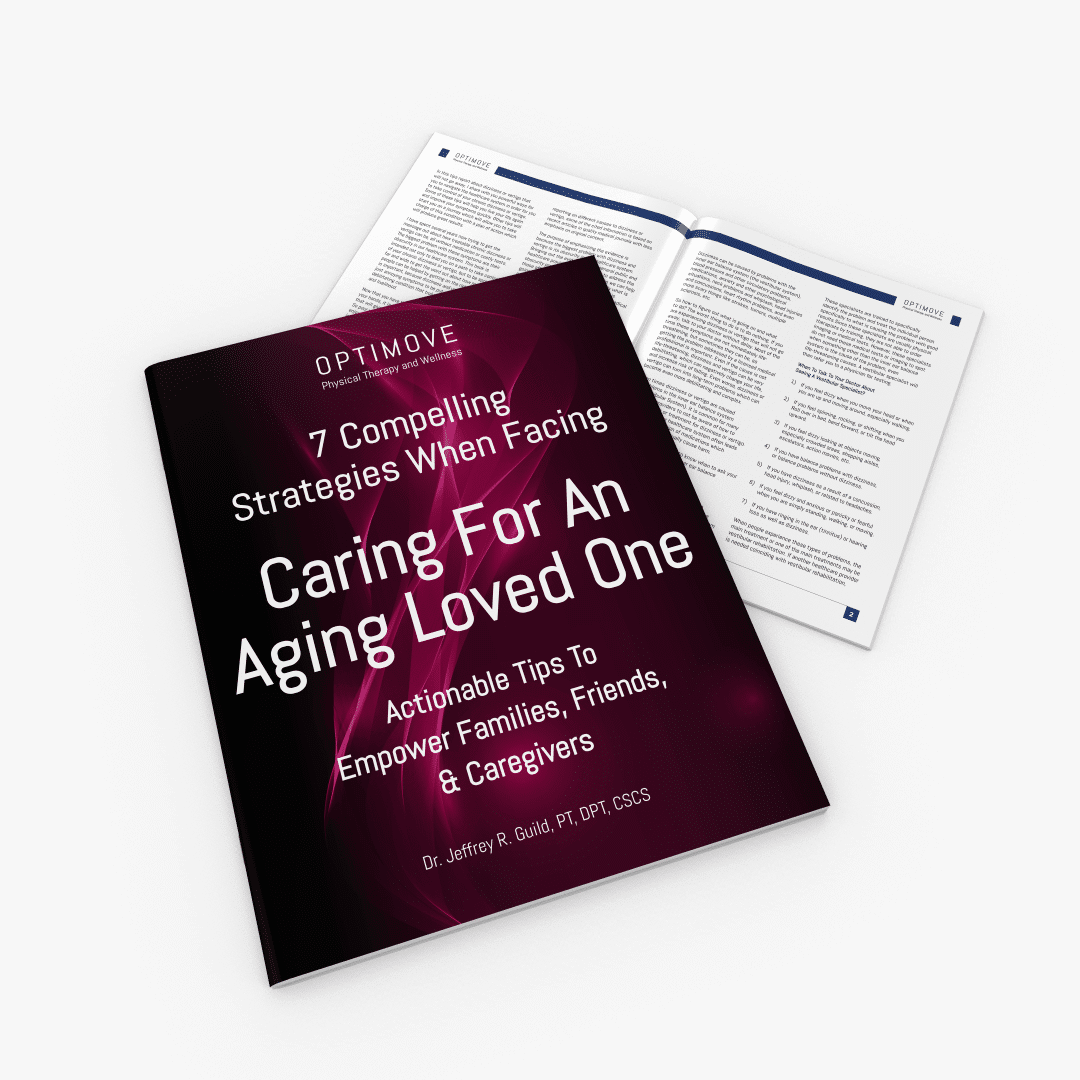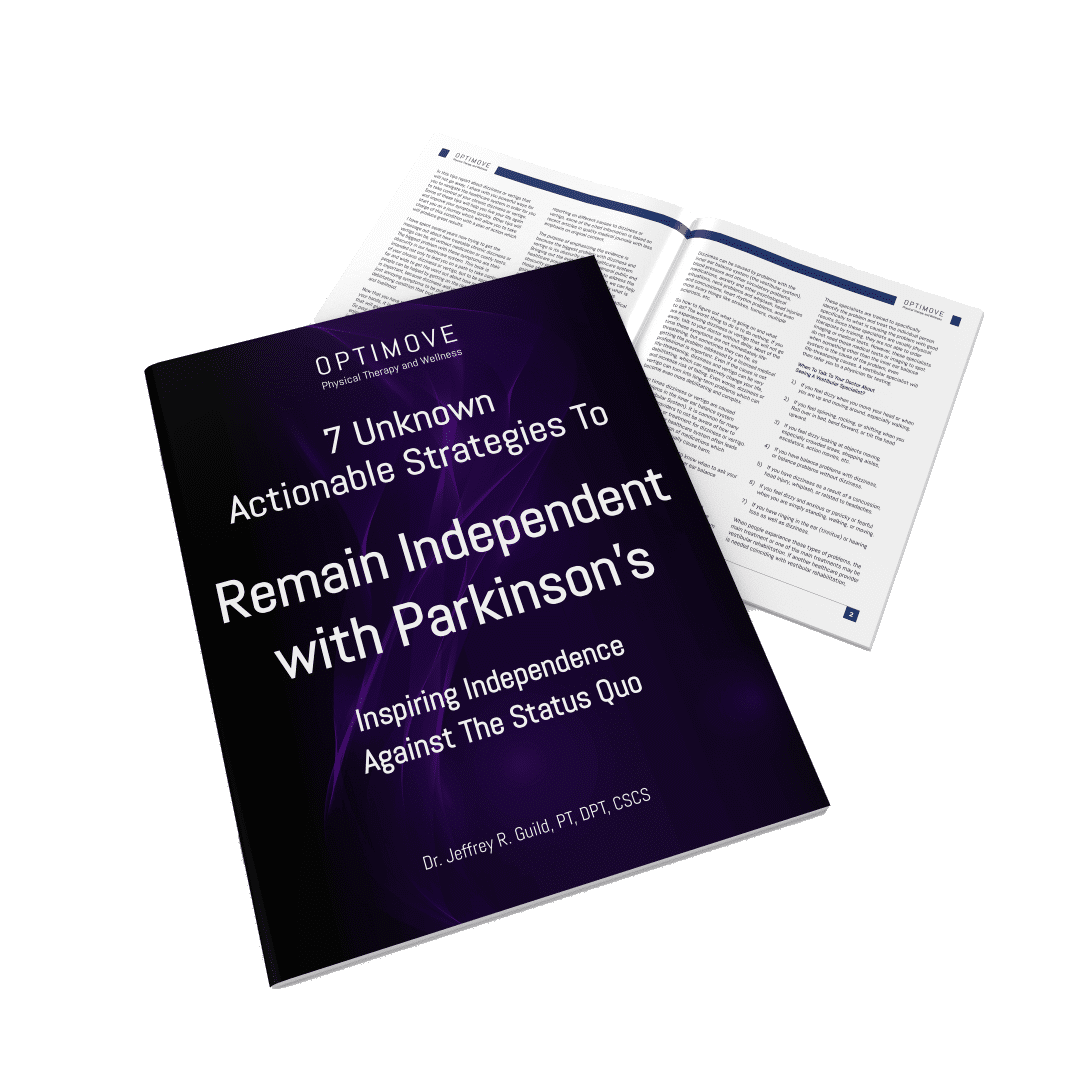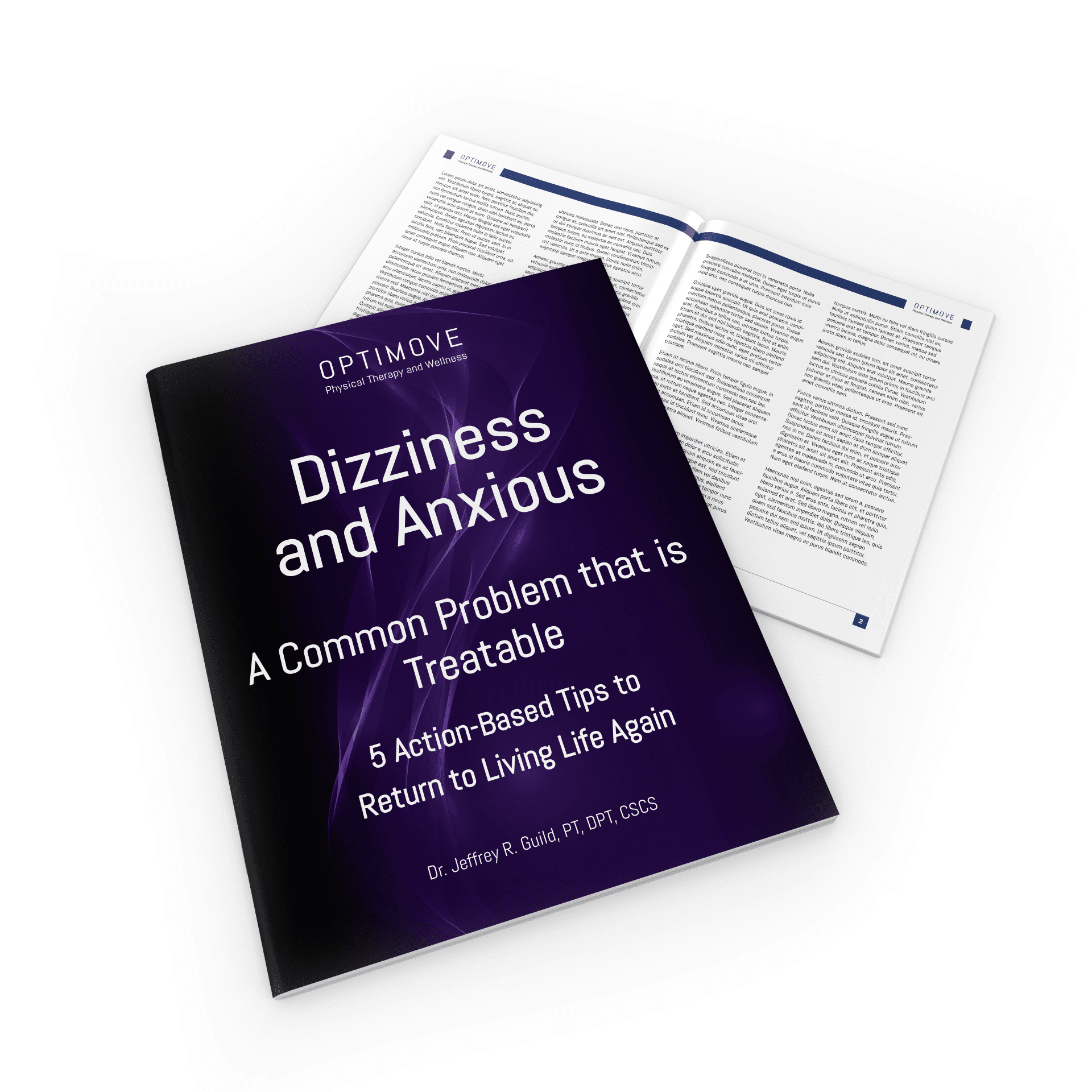We’re thrilled to feature our very own Andy, a dedicated physical therapist from our Optimove team. Andy shares compelling experiences on how our revolutionary mobile physical therapy services are making a world of difference in the lives of the people we work with.
At Optimove, we pride ourselves on our team-centered culture. With every team member’s perspective valued and respected, we’ve created a vibrant, supportive environment where our main goal is to provide the highest level of care for our clients.
–
Do you or an aging loved one struggle with balance and falls? There is hope. Let us empower you to maintain your independence at home and in the community.
Click the link below to book your free in-home discover visit: https://old.optimovedfw.com/balanceandfallsfb
Andy (00:00:00) – Listen. So, Andy, how did you end up working for Optimus? What what attracted you to. To work with them? Well, I actually met the Optimus Team prior to the pandemic. I was working at a local neurologist practice, and Dr. Guild and his team at the time came in and we had a little sit down meeting with us and we scheduled one later for a time to meet with some of the doctors, and we got to learn about Optima in its infancy. It was really a great opportunity for both of us to kind of learn how we could help one another. At that time, we had a couple of our doctors refer clients to Optimus. At that time, I believe, if I remember correctly, they were focused mostly on vertigo and weren’t really doing a lot in mobility. So that’s something that they’ve done since I’ve started with them, is really kind of work on spreading out their their focus, but just kind of getting to interact with their office and their therapist and kind of getting to learn how they took care of our patients as their clients.
Andy (00:01:02) – And, you know, everything was always positive. It didn’t matter whether you were calling to get medical records or to to see about, you know, just kind of a status update on a client. It was it was always seamless and the patients were always really happy with their results. So it was one of those things where all of the interactions were always positive and there was something that, you know, attracted me. When I was looking for a new job, I saw that Optimus was hiring and I was really excited to apply because I knew if they took that great of care of their patients and they’d have to take really great care of their employees as well. And I was not wrong.
Andy (00:01:40) – In your time there with them, since you’ve been been working, what was that experience been like? Why do you continue to work there when there could be other options out there?
Andy (00:01:49) – Yeah, I think the bottom line is, is I agree with what is trying to do. You know, they want to keep our older citizens active and mobile in their community.
Andy (00:02:01) – They want to give them a resource that a lot of them are lacking. A lot of them is difficult for our seniors to get to and from a four walled clinic. And so taking that mobility aspect out of the equation and us coming to them has been really important and really impactful for a lot of our clients. I have had grandparents that have been in nursing homes, in memory care and not having the access to a mobile physical therapy company has been really big for them. They live in Cincinnati, Ohio, so unfortunately Optima is a little out of their zone. But what’s really impactful for our clients here is we don’t have to worry about our clients having to drive through DFW traffic. Their family members don’t have to worry about coordinating those appointments around when they’re able to travel to take them to those appointments. Taking time off of work to drive across town, pick mom up, drive back across town to take her to appointment, and then bring her back home and drive back home themselves. So I think just the convenience right there is one of the big things.
Andy (00:03:07) – The other really big thing that I absolutely love about Optima is just the the team atmosphere, not only on our therapy team do our patients get to have the benefit of having more than one therapist work with them, typically teams of 2 or 3, but they also have the guidance of the rest of the team. So they do collaborate and they kind of they talk about the different clients that we have on our roster at any given time. And if somebody else maybe has a little bit more knowledge in a particular area, we’re able to pull from that knowledge. And then of course, you know, I get the opportunity to speak with so many of our clients as they’re starting their journeys and periodically throughout their journey. And while I’m not necessarily speaking to them about their clinical wins, we’re talking about those great wins. Like, Hey, I got to go out shopping with my girlfriends and I didn’t need to utilize, you know, my husband’s arm the whole time. I was able to navigate utilizing my cane because we practice so much, you know, during my session.
Andy (00:04:09) – And so we get to really be a part of that and get to be a part of that, that victory as they’re achieving those things. You know, the other thing I really loved about my journey so far with Optima is that I’ve really been able to grow not only within the company but also as a person. When I started with Move, I was a client liaison. So that’s somebody who gets to work on all of these incoming leads that are coming in, whether it be a referral, whether it be word of mouth, whether it be somebody who came across, you know, our Google ad, our TikTok videos. What’s really great about that is you get to find out why they called you in the first place and you get to be that first person that says, hey, you’re not walking this journey alone. I’m going to be here with you. Let me guide you from here on. You took the first step, which was the most important one, which was calling. And so we get to talk to them about what their goal is.
Andy (00:04:57) – We get to find out that, Hey. My grandson is graduating from college in the summer and I want to be able to get into the stadium myself and not have to have somebody push me in a wheelchair or, you know, maybe they’ve got a wedding coming up in the spring and they want to be able to walk their daughter down the aisle. You know, those are the things that matter, you know? Yes, it’s great. We want to be able to get up and walk. But why? And so sometimes just having that conversation that it’s not a quick 2 or 3 minute oh, I’m taking your demographics. You’re scheduled for Friday. It’s who are you? Why did you call? What’s important to you? How can we help you? And that’s a 15, 20, 30 hour minute, you know, 60 minute conversation. And that’s how they know that they’re in the right place. And that’s how we set the therapist up to tell them, Hey, now you know that we feel comfortable.
Andy (00:05:50) – Let’s go ahead and tell you how we can help you clinically. Now it’s more holistic, and that’s something I really like where we’re helping the person and not just the diagnosis.
Andy (00:05:59) – For someone that’s looking for a job in this space, a physical therapist or whatever, I just people that that would like to be in this space. Why should they consider working for Optimum?
Andy (00:06:10) – Yeah, that’s a great question. I’ll tackle the therapist’s side first just because I think there’s there’s definitely pros on both sides for therapists as well as our admin staff. So for a therapist, I think one of the things that a lot of our team talk about is they love the fact that they have a lot more autonomy than they would in necessarily a four clinic. They are clinicians, they went to school, they they have the degrees to prove it. So being able to to treat as they want to, I think is a really big I think also not being governed by those four walls that you would see in a traditional clinic. We meet our clients at their home, so we’re able to help them navigate in a place that is important to them.
Andy (00:06:51) – Whereas if you were stuck in a four wheel clinic, you’re working based off of what the client tells you and you’re trying to speak about, you know, if this is how your house is set up, this is how I would suggest you living within that space as opposed to us literally getting to walk into their kitchen, walk them from their bathroom, you know, actually take the steps that they would be taking and figure out how best to help navigate them through that. A client who wants to go out to an outdoor shopping plaza, we meet them there, we do test runs. We had a lady this past spring. She had a wedding to go to for her goddaughter, and one of our therapists met her at the church, walked her up the stairs, walked her into the venue, walked her to the reception space. And you know what? It was worth it because that lady called after the wedding and I was almost in tears just hearing how absolutely happy she was. She was exhausted because she was up dancing that night.
Andy (00:07:44) – But she was absolutely happy that she was able to do that. And that’s not something we would have been able to achieve to the same degree of effectiveness in a four world clinic. I think also just we are mobile, so the therapist actually get to see the sun. I remember when I was in a clinic before I’d walk in in the morning, it’d be dark and I’d walk out in the evening and it’d be dark. And you didn’t see the sun. You didn’t know if it rained. I was in Ohio for some of that. So you didn’t know if it snowed. They get to actually see a bit of Dallas as they’re driving from client to client. And I think that that’s also a special thing, being able to take a client, you know, through their neighborhood and walk around the pond. You know, I just think that that’s something that’s so special you don’t get to do that when you’re in a four walled clinic. You’re in those four walls. They won’t hardly even let you go to the parking lot.
Andy (00:08:33) – So I think that that’s just something that’s really nice. Also, documentation, you know, our documentation is different. We’re not governed by all of those medical companies with their insurance guidelines because we don’t work with those insurances. So we don’t have to worry about that. It just means that they get to spend a lot more time where their talents are needed, which are with the client and not with the documentation for an admin person. For me, I absolutely love the interaction I get with our clients and I think that that’s something that’s really important. Like I said before, we have this kind of cut and dry. I’m going to call in, I’m going to get scheduled based on getting my demographics and what the diagnosis is. And I’m scheduled for Friday. And that’s all of, you know, 3 to 5 minutes. And I feel like that’s so cookie cutter. I feel like that’s something that they can get anywhere here. We’re taking the time to get to know that individual, get to know why they’re calling in the first place, get to know what they want to get to.
Andy (00:09:25) – And again, we get to follow that. If you’re in an office building and you’re in a call center scheduling these appointments, most of the times you never see these patients and you never talk to them again unless there’s a problem. You know, for me, yes, if there’s a problem, I’m going to be the one fixing it. But I also get to hear those victories of, Hey, I had such a great time at the graduation or Oh my gosh, I can’t believe I stayed up so late at the wedding last night. You know, those are the kind of things that as an admin, I never got to really experience because that was always shared with the office staff when you checked in. Oh, yeah, it was great. But if you weren’t face to face. You don’t get that. So, you know, I have that as a benefit. I also love the fact that we coordinate so much with the clinical staff. You know, I may have a really involved conversation with the client or their power of attorney, and that’s vital information that the therapists then can utilize when they’re having the visit.
Andy (00:10:18) – I’m coordinating things with the care managers, with the doctor’s offices. So these are things that in a lot of different settings, your office staff doesn’t necessarily get the opportunity to have those interactions. And I think it’s just really special to kind of see all of those inner workings and to really be a part of the team. It’s not an us versus them, it’s us for them kind of mentality. And I think that that’s something that’s so very different. Fantastic.
Andy (00:10:45) – You’re rocking, by the way. I’m always impressed by you because you hardly use any filler words. Thank you. I mean, it’s there. You’re just human. But it’s like you just went for ten minutes straight. Give me a second. Any questions that you think I can ask you? That you would be. Should be. I should be asking.
Andy (00:11:03) – I think one about growth for optimum like growth within the company, I think is a question that a lot of people like applicants ask about. I kind of started it when you asked about like my journey, and then I realized that I didn’t actually finish it all up.
Andy (00:11:16) – Um.
Andy (00:11:17) – What type of growth opportunities are available within Optima?
Andy (00:11:22) – That’s a great question. Being the operations manager, I’m going to speak on my journey through Move and kind of what a person coming in on the admin side would look like and then of course speak about what a physical therapist would look like as well, because those are very separate journeys, obviously. So coming in, I started out as the client liaison, and so the client liaison, like I said, gets to be the person who is the first interaction with most of our leads and our clients to be. So we get to find out what’s going on. And that was such a great opportunity to start get to learn a little bit more about the company, get to learn about our clients as we progress. Of course there are other roles. There’s SDR, which is a sales role, so that’s really working one on one with those leads as opposed to those follow up visits that we’re having where maybe you’re scheduling for the upcoming sessions or you’re doing nurturing calls as as we’re going along either for the leads or for the follow up clients.
Andy (00:12:20) – What’s really great about that is working in that office, you are still working with the therapist. It’s not like you’re siloed off and you never see these people. We are still going to have meetings throughout the week. We are still going to get to work with them hand in hand. But we do have a different role that we obviously are going to fulfill as we grow on, you know, having a site manager, having an operations manager. These are roles that those office staff, those admin staff could then go on and to fill as Optimum continues to grow and we’re servicing more and more of the DFW area, it’s only a matter of time before we’re going to need multiples of every single role. And so while that person may start as the client liaison, they may then become the client liaison trainer. And so now that person is going to be in charge of training all of the new client liaisons that come in. As we continue to build more people on that team, we’re going to have a client liaison manager.
Andy (00:13:13) – They’re managing all of those client liaisons or we have a sales manager or sales trainer know those are all different roles that you can continue to do. You may have a site manager, you may have the operations manager as you go. As far as what that structure and certification looks like, every company calls them a different name. Where are we right now? We’re still we’re still a startup, so those names aren’t set in stone. So if you heard me call something one thing now, it could be something different when we actually roll each of those different roles out, you know, that’s that’s the beauty of it. The other great thing is, is that because we are a startup, nothing’s set in stone that can’t be rewritten to be positive for the team that we have currently. So somebody who starts out as that SDR, they are not stuck in that role. Maybe they are going to be a better client liaison, maybe they’re hybrid and they do a little bit of both, and then that’s just more ammunition for them to say, Hey, I’d love to have the opportunity to learn this other skill and, you know, become a trainer, become a manager and that skill as well.
Andy (00:14:14) – On the therapist side, of course, every therapist is going to have a varied background based on where they’ve worked before, what kind of clinicals they did during their rotations. And so some of that is going to lead into that as well. But it’s also going to be based on, you know, did this person go and pursue like an ox? Did they did they go and get a geriatric specialty? Did they go in and learn this extra technique? All of those things are going to be coming into factor and playing into that progression for the therapist. Also, how comfortable are they at teaching people? If you have somebody who has that background? Yes, it’s great that they have that knowledge. But if they can’t impart that knowledge upon others, they’re probably not the best fit for a trainer. Now, are they very analytical? Are. Are they good problem solvers? Are they able? I would hope they’re good problem solvers as a physical therapist, you know, are they able to do those kind of things? Are they able to delegate? Are they able to help build a team up? Those are kind of features and traits that we’re going to be looking for, for a manager, for a supervisor.
Andy (00:15:16) – But that doesn’t mean that those are the only ways to move up in the company. Maybe this person is really great with educational things and they want to lead our educational component. So this could be teaching the team of new techniques, teaching the team of topics that they’ve learned and researched on. This could also be the person during a new therapist onboarding. They’re going to be the one that we have that therapist follow and shadow to learn how we are handling all of our interactions in the field. And so there’s a lot of different opportunities that we have within the company. Do they all have set names? Not right now because we are going through the fact that we are still a startup. You know, a name is only as good as you, as good as you make it be. You could call it a supervisor. It could end up being a manager. It could be, you know, department head. It doesn’t really matter. The fact is, as we want to put the aces in their places, you know, we want to make sure that those people that have that ace, that that top skill are being utilized where they can be most impactful.
Andy (00:16:19) – And if it means that they have a title, it means they have a title. If it means that everyone just knows that that’s what that person’s role is and they get compensated for that role, That’s what it is, you know? And I think that’s the important thing. If you get hung up on the name, then you’re not there for the right reason in the first place.
Andy (00:16:37) – What would you how would you gauge the general mood, the culture of optimism as far as a working place, the work?
Andy (00:16:44) – Yeah. You know, I think that’s a really good question. And I know it’s a stereotype. It’s a cliche that, Oh, you’ve got this work family, and maybe it’s because we’re still relatively small, but we know each other like we know we know the things that people like to do. You know, we genuinely care about what someone did over the weekend or, you know, hey, I tried out this new restaurant and thought of you, you know, or, hey, I was at Costco and I saw this.
Andy (00:17:11) – I saw this vegan option. And, you know, I thought you might want to try it. Let me know if they don’t have it at yours and I’ll pick it up. So it’s like, you know, those things that that you want. We all still give each other the space. It’s not like we’re constantly bothering one another when we’re not at work. But I think there’s a nice level of, hey, if I wanted to go and hang out with this person, we probably would. But it’s also that there’s that level of respect and it doesn’t matter whether you’re a clinician or a non clinician. Currently I’m the only non clinician on the team, but I think what’s really nice about it is that each person brings something to the table and every single person on the team really does respect what that person brings to the table and they bow their head when it’s not a spot that they bring more to that, to that conversation. You know, my background is very different than what our therapist’s background is.
Andy (00:18:02) – I’ve had a management background. I’ve been in orthopedic clinics, neurology clinics. You know, I’ve had that background where as someone who is, you know, fresh out of school is going to have a different perspective to somebody who’s been treating for ten years. Things that they learned in school were things that maybe weren’t on the cutting edge when the other therapist went to to school ten plus years ago, or they’ve had more exposure to something because it’s become more studied. Somebody who is an expert in a particular area, we’re going to lean on them heavily when it is their area of expertise. And, you know, the great thing is, is egos aren’t really a thing here. You know, I think everyone has the opportunity to be proud of something that, you know, that they can lend to the conversation, but they’re not too proud to not bow down when somebody has more knowledge in a particular area. And I think that’s the beauty of it. It’s, Hey, I’d really like you to meet my counterpart here.
Andy (00:19:01) – I think that they would be the person that would give you the best care because they have more experience in this area. And so being able to to see that amongst the therapists, being able to say, hey, you know, this this is getting more into the clinical side. Let me let me connect you with one of the therapist or hey, you know, yes, I’m a therapist, but this person has more experience in this. Let’s get you to the right person. So I think that that’s beautiful.


